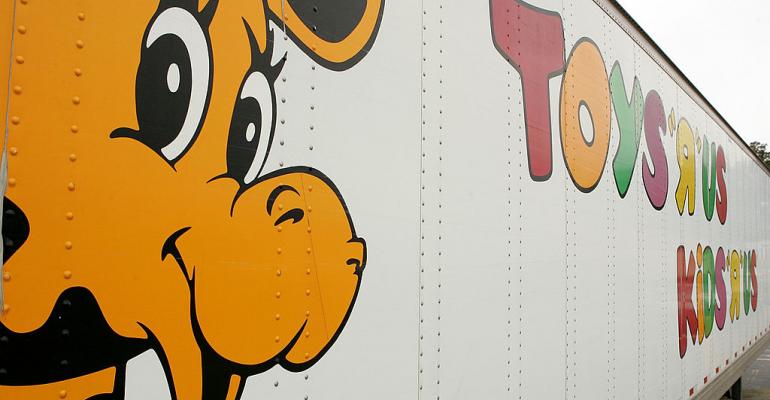As Toys ‘R’ Us winds down its business for good, the company’s website is no longer operational for everyday Americans looking for liquidation bargains. The company is still attracting buyers, however, as retailers, landlords and other investors bid for the defunct retailer’s physical locations.
Some of the store selloffs, including about 100 locations, started in December, after the company initially filed for Chapter 11 bankruptcy protection. Now that the entire portfolio of about 700 remaining stores is closing, however, retailers that need to scoop up stores for expansion plans and landlords eager to increase rent revenues are lining up for more.
Most of the Toys ‘R’ Us stores on the block are vacant, lack income streams and thus do not qualify as cap rate trades, industry sources note.
“The majority of the people who are going to be interested in acquiring assets in the future are going to be more interested in the residual real estate,” says John Feeney, a vice president at The Boulder Group, a net lease brokerage firm based in Northbrook, Ill. “The majority of Toys ‘R’ Us stores are at or below market rate, so there’s upside if landlords release the property.”
Green Street Advisors, a Newport Beach, Calif.-based research firm, offered one hint as to which landlord could see the most potential upside from releasing the Toys ‘R’ Us properties. Urban Edge Properties, a REIT based in New York City, has exposure to about nine Toys ‘R’ Us stores, and the highest rent exposure as a percentage of its overall portfolio. Yet that exposure totals less than 2 percent, offering insight into how little the toy retailer had contributed to rent income streams.
Many Toys ‘R’ Us stores are located in fairly good retail corridors, Feeney says, setting up landlords to regain quality properties that could generate rents of about $3 to $5 per sq. ft. A typical Toys ‘R’ Us location measures about 40,000 sq. ft. of space.
In the first quarter of 2018, cap rates on Toys ‘R’ Us-anchored retail centers averaged about 6.9 percent, according to Real Capital Analytics, a New York City-based research firm.
As for store sales that have occurred since the auctions began, the prices have ranged anywhere from $10 to $500 per sq. ft., according to an email from one professional with knowledge of the transactions who chose to speak on background. One store in Emeryville, Calif., for instance, attracted a winning bid of $15.6 million. Other stores were disposed at auction for $10,000 and less.
Among the retailers that have bid for Toys ‘R’ Us locations one industry source named discount chain Big Lots!, based in Columbus, Ohio, and furniture seller Raymour & Flanigan, based in Liverpool, N.Y. Ultimately, other parties made the biggest plays for the properties.
“Most were real estate investors,” says the professional. “Many were landlords simply bidding to win back control of the property.”




